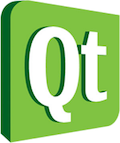Disappointment and anger greet Nokia's MeeGo plans
 As Nokia charts its new Windows Phone 7 future, its partners in MeeGo development, Intel and the Linux Foundation, have expressed disappointment with the announcement. Intel, who according to some reports was unaware of Nokia's plans to drop MeeGo as its primary smartphone platform, has said that while it was disappointed, it remained committed to MeeGo and hoped Nokia would continue to contribute to the project it co-founded with Intel almost exactly a year ago.
As Nokia charts its new Windows Phone 7 future, its partners in MeeGo development, Intel and the Linux Foundation, have expressed disappointment with the announcement. Intel, who according to some reports was unaware of Nokia's plans to drop MeeGo as its primary smartphone platform, has said that while it was disappointed, it remained committed to MeeGo and hoped Nokia would continue to contribute to the project it co-founded with Intel almost exactly a year ago.
Nokia and Intel had put their respective mobile Linux operating systems, Maemo and Moblin, together and placed the project, dubbed MeeGo, under the management of the Linux Foundation. The Foundation's executive director, Jim Zemlin, also expressed his disappointment with Nokia's announcement: "Tough times give birth to tough decisions", said Zemlin "but open source is – at its core – about choice". He also hoped that other partners would step forward to participate in MeeGo.
Nokia was expected to lead the adoption of MeeGo with phone handsets based on the Linux platform. Currently it says it only plans one "MeeGo-related device" to appear this year, before moving MeeGo into "longer term" projects. At the same time, Nokia's CEO, Stephen Elop, has said the company hopes to have Windows Phone 7 devices out before the end of 2011, though wouldn't give a specific date.
Now, MeeGo's future appears to be in other market spaces. Intel pointed to netbooks, tablets and automotive systems as other potential venues for MeeGo and has been showing a MeeGo Tablet user experience (UX) at Mobile World Congress in Barcelona. Fujitsu also launched a MeeGo based netbook, though the machine the company has loaded MeeGo onto has been on the market for over a year.
 Application developers are also worried about the future of the Qt web framework. Nokia had made much of how Qt was the future for mobile application development on all Nokia devices. Daniel Kihlberg, Director of the Qt Ecosystem, posted to the Qt Blog about Nokia's plans: these involve addressing the remaining 150 million Symbian devices the company expects to sell in the future with Qt applications and creating applications for the forthcoming "MeeGo related device". The lack of Qt for Windows Phone 7, which would have given mobile Qt application developers a migration path, appears to have angered many of those developers who have commented on the blog. Aron Kozak, head of the Web and Community group, attempted to calm the commenters saying, "This is not the end of Qt, just a bump in the road".
Application developers are also worried about the future of the Qt web framework. Nokia had made much of how Qt was the future for mobile application development on all Nokia devices. Daniel Kihlberg, Director of the Qt Ecosystem, posted to the Qt Blog about Nokia's plans: these involve addressing the remaining 150 million Symbian devices the company expects to sell in the future with Qt applications and creating applications for the forthcoming "MeeGo related device". The lack of Qt for Windows Phone 7, which would have given mobile Qt application developers a migration path, appears to have angered many of those developers who have commented on the blog. Aron Kozak, head of the Web and Community group, attempted to calm the commenters saying, "This is not the end of Qt, just a bump in the road".
While some developers have suggested forking Qt, in a similar fashion to LibreOffice and OpenOffice, others have pointed out that the majority of the code commits to Qt come from Nokia and it would be a major task. Other developers have noted the "KDE Free Qt Foundation", established in 1998, which allows Qt to be relicensed under a BSD licence if Nokia ceases development of a free version of the framework. Given that Nokia is currently developing Qt and that the terms of the Free Qt foundation require at least twelve months of non-development to take place, it seems unlikely that this would play any part.
(djwm)
![Kernel Log: Coming in 3.10 (Part 3) [--] Infrastructure](/imgs/43/1/0/4/2/6/7/2/comingin310_4_kicker-4977194bfb0de0d7.png)

![Kernel Log: Coming in 3.10 (Part 3) [--] Infrastructure](/imgs/43/1/0/4/2/3/2/3/comingin310_3_kicker-151cd7b9e9660f05.png)
















